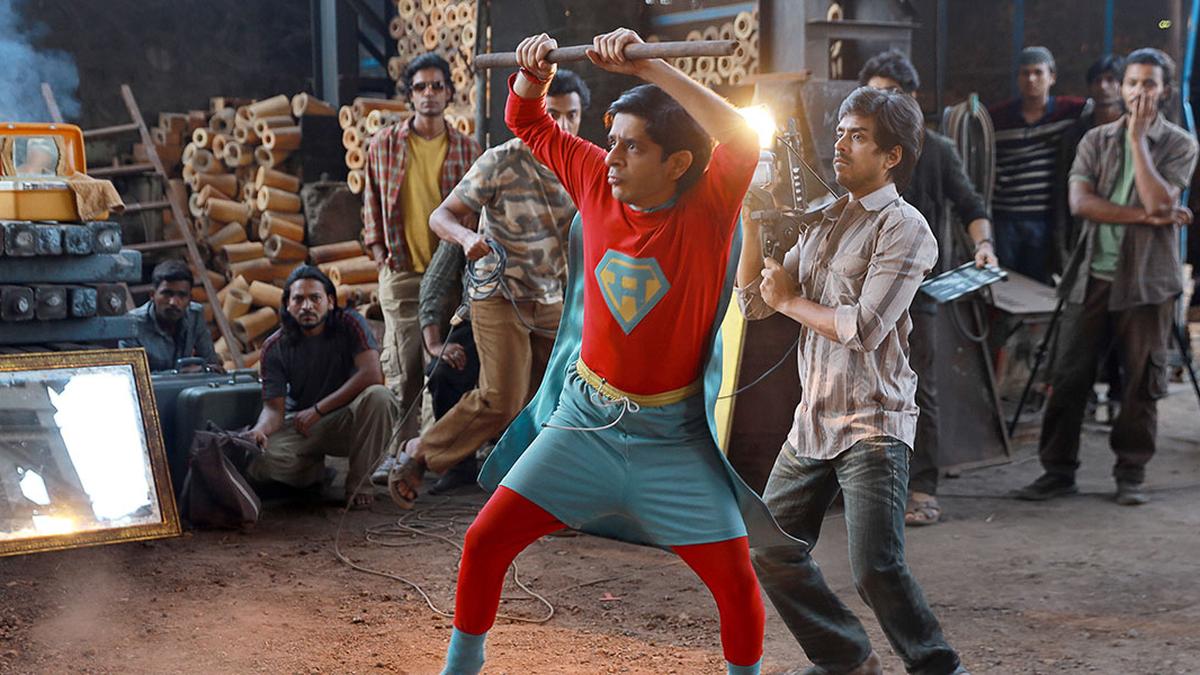
Video parlour dreams: How ‘Superboys of Malegaon’ found cinematic life
The Hindu
Zoya Akhtar to back ‘big film’ set in Malegaon, reveals Nasir Shaikh
Sometime in the year 1996, Nasir Shaikh, a video parlour proprietor and movie buff in Malegaon, a small city near Nashik in Maharashtra, embarked on a grand mission. Marshalling a ragtag team of friends, he began directing a series of delirious spoofs of classic films, rigging a camcorder on the rear of a bicycle to use as a dolly mount. The films — doubly entertaining for being made on the cheap — spawned a local cottage industry, colloquially known as Mollywood. A ₹50,000 investment (typically loaned by family and friends) would fetch Shaikh a return of ₹2 lakh: a 300% profit.
Shaikh’s ingenuity, initiative and disarming sincerity was beautifully captured in an acclaimed documentary, Supermen of Malegaon (2012), directed by Faiza Ahmad Khan. Thirteen years later, a feature film on his life, lightly fictionalised and titled Superboys of Malegaon, is releasing in theatres. The film is directed by Reema Kagti and written by Varun Grover.
“Faiza’s film is one of the best documentaries made in this country in the past two decades,” says Grover, who met Shaikh in 2012. His own research opened up a world, and a history, that simply could not be contained in a 90-minute format. Apparently, Malegaon’s filmmaking traditions predate Shaikh. “There is a 10-minute chunk we have edited out of this film which is about a movie made in Malegaon in 1970s,” reveals Grover. “So there are countless stories about people who came even before Nasir.”
Grover says his interpretation is more expansive and symbolic: the motley characters represent filmic archetypes: one’s a writer, one’s an aspiring actor, one’s a diva. Malegaon, thus, is Mumbai or LA or Hyderabad in miniature, a microcosm of dreams, ambitions and clashing egos (the city’s communal past, meanwhile, is papered over in the narrative).
“I saw a space to say things about art, about cinema, and also the judgement we carry about B-grade and C-grade cinema,” expands Grover, “Who decides what is highbrow and lowbrow? Is it linked to the social class of the audience and our gaze towards them? I intended to break that gaze.”
In a funny scene, one of the principals, a self-serious screenwriter played by Vineet Kumar Singh, declares defiantly that he is adeeb (Urdu for ‘scholar’). “You are ajeeb (weirdo),” retorts his father. “I just love that word,” chuckles Grover.
Adarsh Gourav, who plays Nasir in the movie (with a Kumar Gaurav hairdo), shadowed the local hero and savant through the streets of Malegaon. “He showed me around the city. I would eat at his home and the homes of his relatives. They would tell stories about Nasir and how he affected their lives.”













